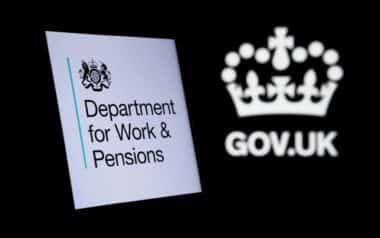Reports of a possible overhaul to public sector pension schemes have sparked concern among unions and workers, raising questions about retirement and future financial security. Speculation suggests that government plans could exchange higher salaries now for reduced pensions later, a move that critics warn might leave many retirees facing poverty.
Proposed Changes to Pension Systems
The rumored proposal suggests a significant shift in how public sector workers are compensated. It would offer immediate pay increases for teachers, healthcare staff, and civil servants in exchange for lower pension benefits. This approach aims to address recruitment challenges and reduce taxpayer burdens linked to pension shortfalls. However, unions warn it risks undermining long-term financial security for workers, leaving many vulnerable in retirement.
Balancing Pay and Pensions
The proposed plan attempts to balance immediate financial needs with long-term fiscal sustainability, sparking debate over its fairness and practicality.
- Higher wages now, reduced pensions later: Reports indicate that civil servants, teachers, and healthcare workers could receive immediate pay increases in exchange for lower pension benefits.
- Government savings: The plan may aim to address the £208 billion spent by taxpayers over the last decade to fill pension shortfalls.
- Targeted recruitment strategy: Officials have discussed reshaping pay structures to attract and retain key talent, integrating pay and pension reforms into a broader operational overhaul.
While the approach seeks to modernize compensation, critics argue it may jeopardize the retirement security of key public sector employees.
Unions Sound the Alarm
Union leaders and workers’ representatives have voiced strong opposition to these proposed changes.
- National Education Union (NEU): Daniel Kebede warned against forcing workers into a stark choice between financial struggles now or later, emphasizing the importance of fair pensions.
- Unite’s perspective: Richard Munn criticized the plan as inadequate, highlighting existing pressures that push health workers into early retirement due to ill health.
- Doctors’ concerns: The British Medical Association (BMA) raised alarm over declining pay and pensions, arguing that reforms would only deepen the financial strain on healthcare professionals.
Dr. Vishal Sharma, chair of the consultants committee at the BMA, further emphasized the challenges facing doctors:
“Doctors’ pay has been eroded over the last decade by successive real terms pay cuts. The value of our pensions has also been severely reduced due to a combination of a reduction in pay, pension reforms, and pension taxation. It would be neither fair nor reasonable to suggest that our loss in pay can be addressed by further raiding our pensions.”
Union leaders argue that such changes not only jeopardize workers’ retirement but also risk worsening staff shortages in already strained public services.
Implications for Public Sector Workers
The proposed changes could significantly impact the financial future of workers across key sectors.
Long-Term Financial Security
- Poverty risks: Reduced pensions could leave retirees unable to maintain a dignified standard of living.
- Extended working years: Lower pension benefits may compel many to delay retirement, exacerbating burnout and health challenges.
These potential outcomes highlight the serious implications of prioritising short-term pay increases over sustainable retirement options.
Broader Social Impact
The potential repercussions of the proposed pension changes extend beyond individual workers, raising concerns about the broader implications for society and public services.
- Taxpayer burden: While the proposal seeks to reduce pension costs, unions argue it fails to address underlying issues in public sector funding.
- Public service quality: Critics warn that diminished pension prospects may deter talent from entering vital professions, affecting long-term workforce stability.
These factors suggest that the reform could have far-reaching consequences, not only for public sector employees but also for the communities they serve.
Growing Resistance from Unions
Union leaders remain vocal about the potential pitfalls of the rumored pension system overhaul.
Calls for Investment
Union leaders are urging the government to focus on bolstering public services rather than reducing pension benefits, emphasising that long-term solutions require strategic investment.
- Unite: Advocates for increased investment in public services instead of pension cuts.
- BMA: Stresses the need for meaningful pay increases to reflect inflation and economic pressures without compromising pensions.
These demands reflect growing frustration among workers who feel their contributions are undervalued and their future financial stability is at risk.









